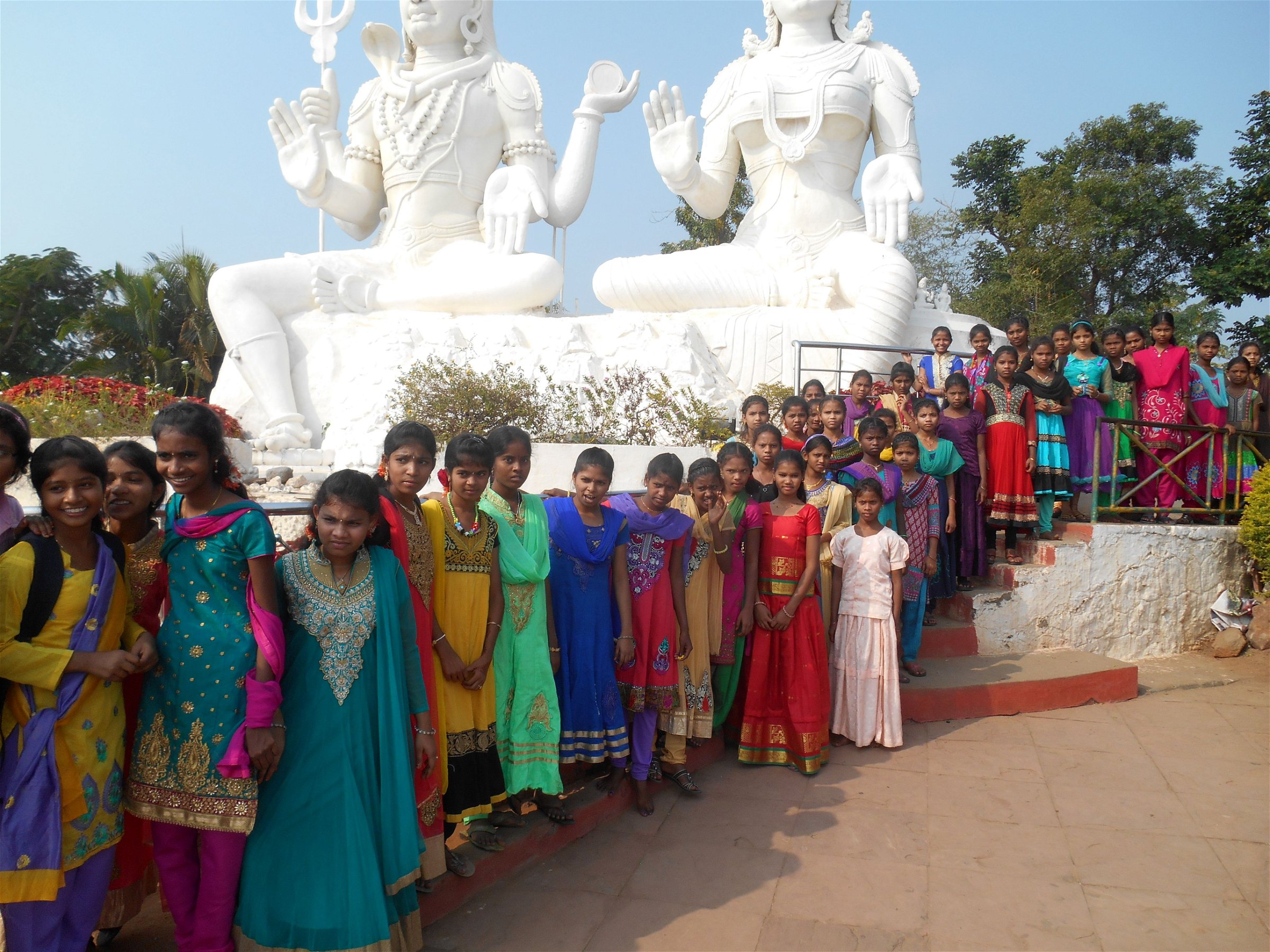Project: Improving Farming Methods, Sanitation, and Health Care in partnership with Global AID
Location: Vizianagaram District, Andhra Pradesh
Category: Agriculture, Environment, and Health Care
Improving Tribal Communities
Malnutrition, sickness, and poverty are endemic among tribal communities; poor sanitation and health care practices in these communities often contribute to the spread of communicable diseases. Also, these communities have been practicing rain-fed farming (i.e., the process of growing crops that possess high nutritive value but require little moisture), but the demand for such crops has been dwindling, and so the acreage devoted to such farming has decreased drastically. Rain-fed agriculture in Andhra Pradesh is also vulnerable to the impact of natural calamities. IDS, in partnership with Global AID, has planned two interventions: an agricultural project for farmers and a sanitation/health care program for children.
The agricultural intervention will begin on 100 acres of land, gradually increasing to 300+ acres over four years. This intervention would:
- Implement seed trials to improve productivity and marketability of farm produce;
- Facilitate the preparation of farming plans by providing guidance and technical support from professional organizations to local farmers;
- Introduce production planning, monitoring, training, and troubleshooting in crop management;
- Facilitate quality management records (i.e., records of soil and water testing, soil management, etc.) and provide linkages with organic/GAP certifying agencies.
Areas where rain-fed organic farming is being practiced have already been identified, and exposure visits to these areas are planned during April/May 2016. Networking with the International Crops Research Institute for the Semi-Arid Tropics (ICRISAT) is planned during the month of April 2016.

The second intervention, a sanitation and preventive health care program, is planned for 250 tribal children. Services offered would include basic education in the role of proper nutrition in health along with activities to encourage proper sanitation (e.g., washing hands). Instruction will be in the form of activity-based learning.
–2015 IDS annual report
Enhancing Resilience of Tribal Communities
Over the last six years, IDS has been working with the Scheduled Tribes of Mentada Mandal who live around Andra Reservoir Project in Vizianagaram District, Andhra Pradesh. This marginalized tribal community is extremely poor, a typical member earning less than 12,000 rupees (about $188) annually. Members of these tribes have little to no access to health care and sanitation and are severely malnourished, increasing the incidence and spread of disease. Productivity in work and education suffers. The tribal populations are further marginalized and left in an even more precarious situation when a disaster, such as the recent cyclone, strikes. In this intervention, we seek to break this cycle by introducing augmented rain-fed farming and preventive health care.
The project proposes to work with tribal communities of farmers. The farmers will cultivate approximately 100 acres of land at the outset and expand to 300+ acres of land in four to five years. Later, the model can be replicated in the upstream areas of Andra Reservoir. At the same time, we will augment our current educational offerings to include basic sanitation practices and preventive health care. Other services would include seed trials to improve productivity and marketability of farm produce as well as seed multiplication programs to reduce outside input dependency.
Additionally, we will facilitate the preparation of farming plans by providing guidance and technical support (with the help of professional organizations) in all areas of farming, from production planning and monitoring to forward and backward linkages on paying soil and water inputs and organic/GAP certifying agencies. We will provide basic education about the role of proper nutrition in good health as well as activity-based learning pedagogy focused on health care and sanitation, making the students the change agents. Our health care project will target approximately 210 children at a unit cost of $11.60 per year per child; our agricultural support program will help 1,050 tribal citizens at a unit cost of $8.16 per year per citizen.
Efficacy of the project will be determined by a reduction in the level of malnutrition based on children’s BMI levels (according to World Health Organization standards) and increased incomes. Indirect outcomes may include improved grades, increased attendance rates in school, and reduced migration to cities.
–2014 IDS annual report

